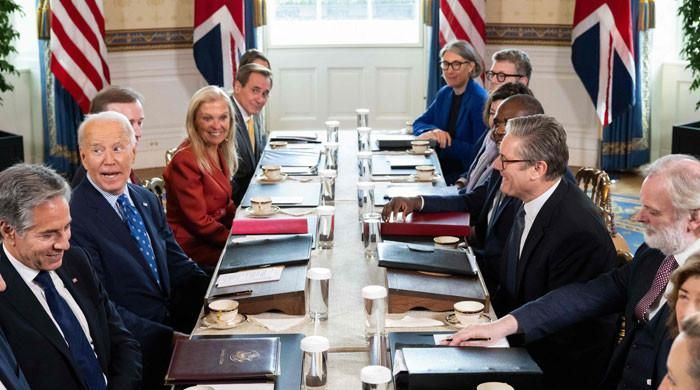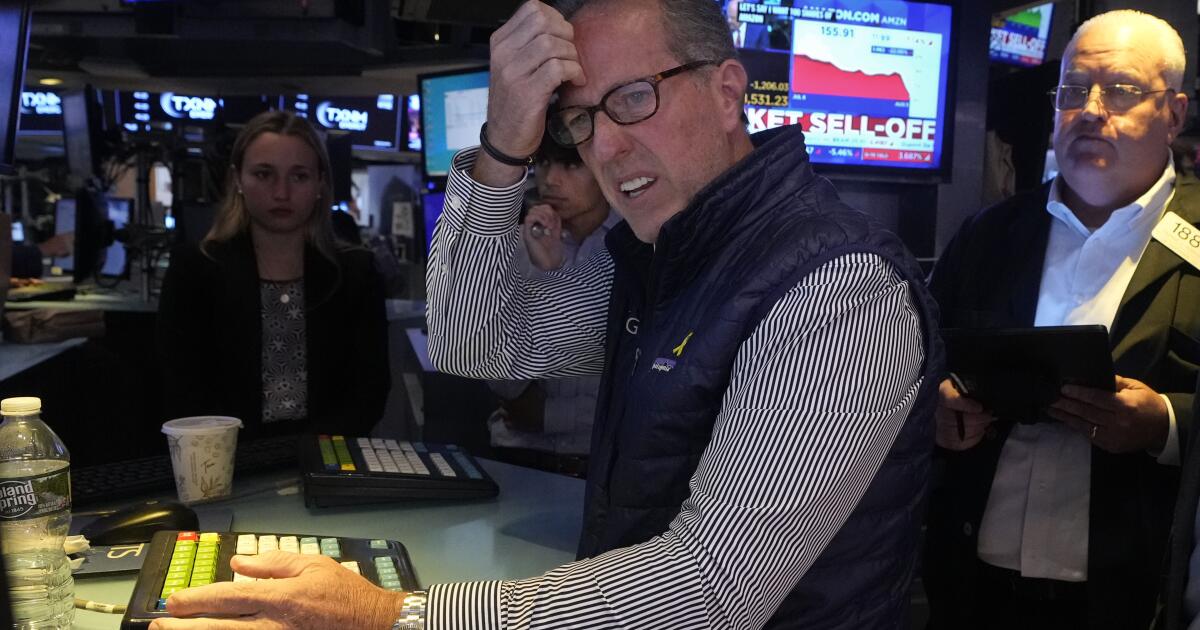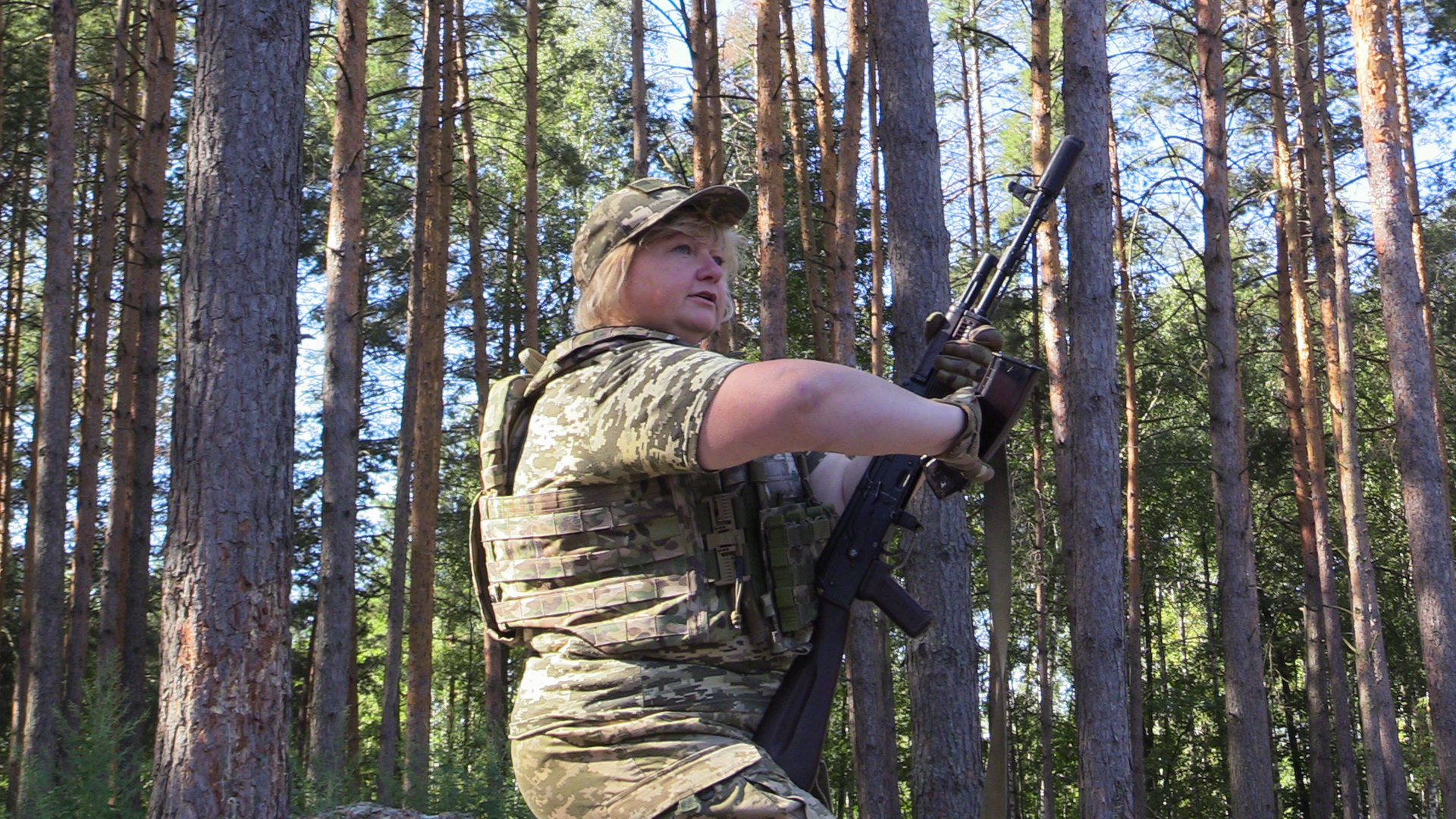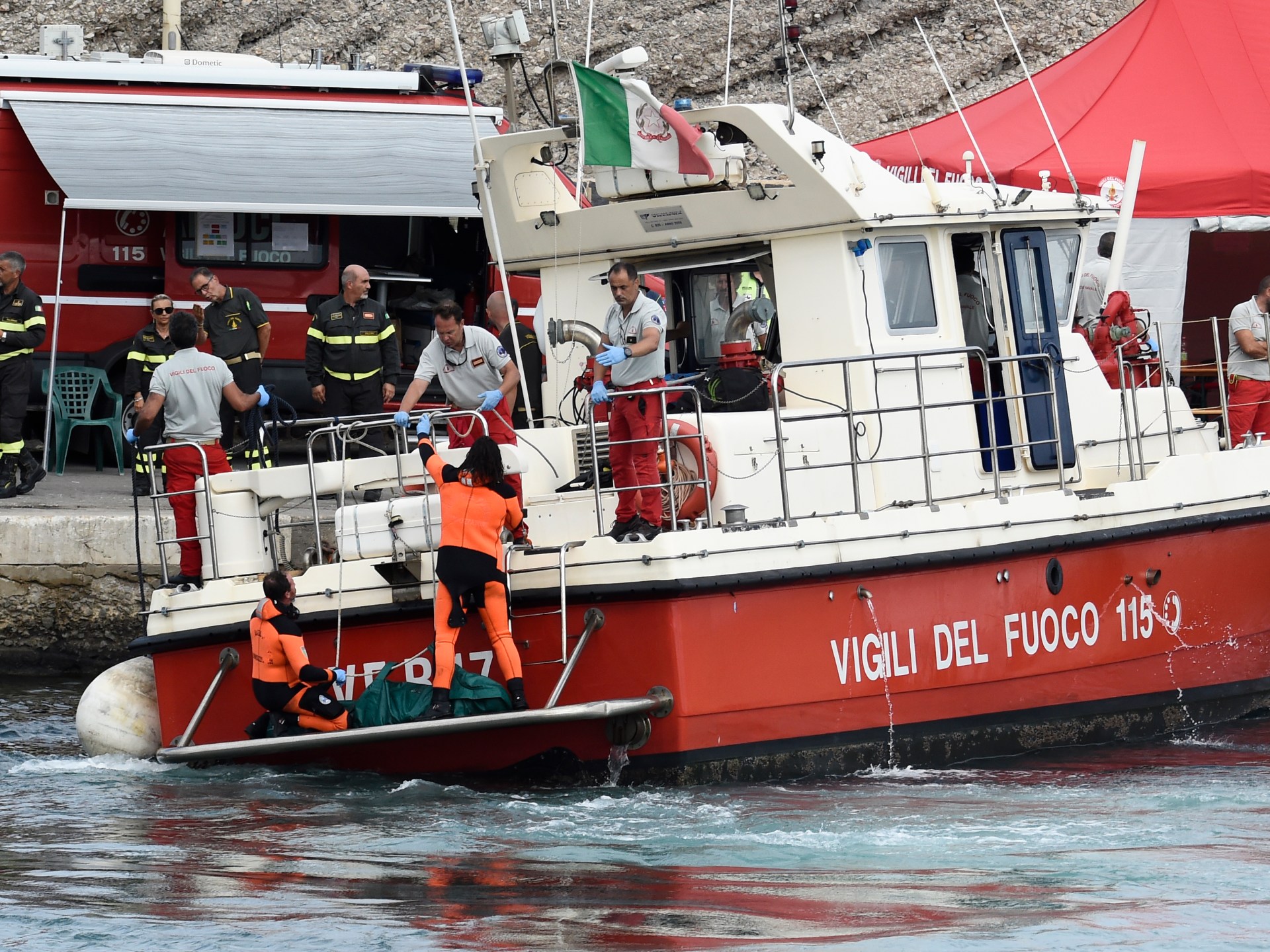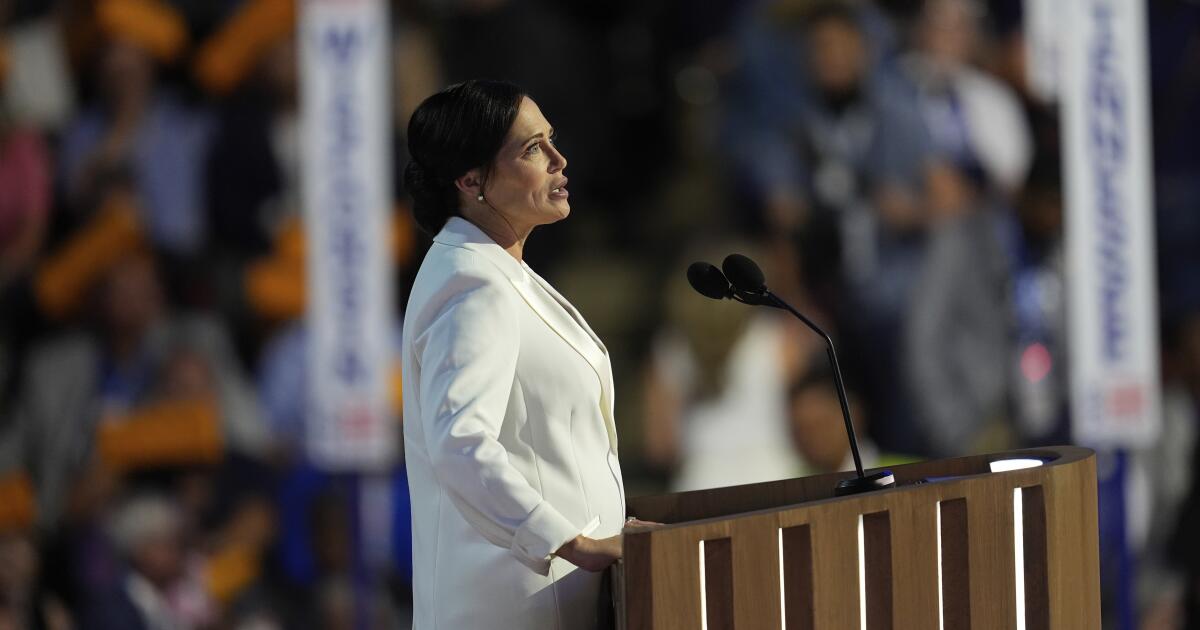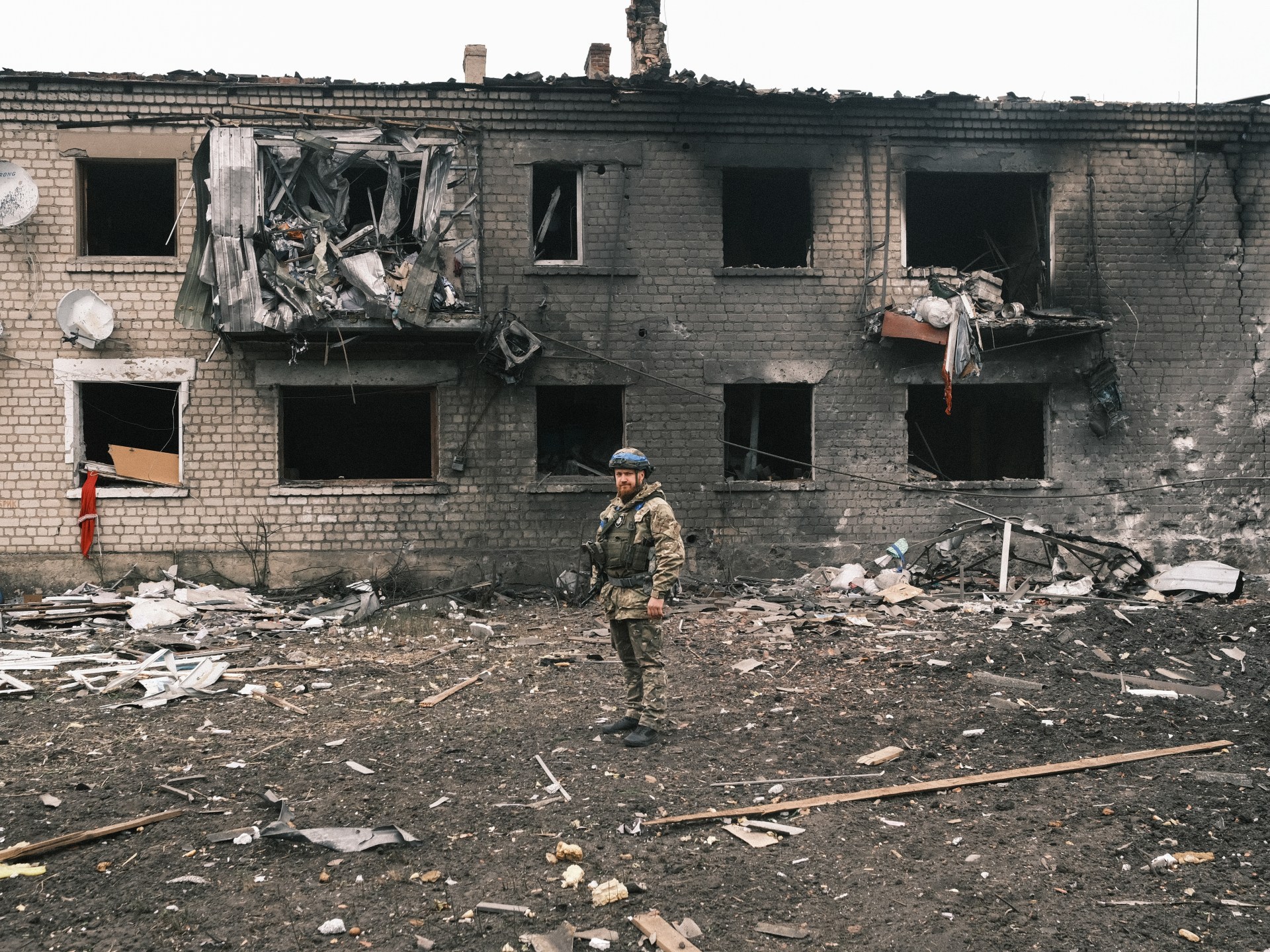WASHINGTON: British Prime Minister Keir Starmer and US President Joe Biden on Friday delayed a decision on whether to allow Ukraine to fire Western-supplied long-range missiles towards Russia, a plan that prompted dire threats from Moscow of war with NATO.
Starmer told reporters at the White House that he had a “broad discussion about strategy” with Biden but that it was “not a meeting about any particular capability.”
Before the meeting, officials had said Starmer would press Biden to back his plan to send British Storm Shadow missiles to Ukraine to strike deeper inside Russia as allies grow increasingly concerned about the situation on the battlefield.
But the Labour leader said he and Biden would now discuss the plan at the UN General Assembly in New York next week “with a broader group of people”.
As they met with their teams at a long table in the White House backed by American and British flags, Biden played down a warning from Russian President Vladimir Putin that allowing Ukraine to fire its weapons would mean the West was “at war” with Russia.
“I don't think much about Vladimir Putin,” Biden told reporters when asked about the comments.
'It will not prevail'
But while Biden said it was “clear that Putin will not prevail in this war”, he is understood to be reluctant to accede to Ukraine's persistent demand to be able to use US-made long-range ATACMS missiles against Russian territory.
U.S. officials believe the missiles would make a limited difference in the Ukraine campaign and also want to ensure Washington's ammunition stockpiles do not run out.
The two leaders said they also discussed the war in Gaza, and that Britain had recently suspended arms shipments to Israel over fears they could be used to violate international humanitarian law.
The United States, Israel's main military and diplomatic backer, has postponed such a move.
Biden and Starmer agreed on their “ironclad commitment” to Israel, but stressed the “urgent need” for a ceasefire agreement and the “need for Israel to do more to protect civilians” in Gaza, the White House said in a statement.
The White House had previously played down the chances of a decision on Ukraine following Friday's visit by Starmer, the second representative of the Labour leader to the White House since he took office in July.
“I don't expect any major announcements along those lines to emerge from the discussions, certainly not from us,” National Security Council spokesman John Kirby told reporters.
'Scared'
But Ukrainian President Volodymyr Zelensky has pressed kyiv's Western allies to do more.
Speaking in kyiv, Zelensky accused the West of being “afraid” to even help Ukraine shoot down incoming missiles, as it has done with Israel.
Zelensky added that he would meet Biden “this month” to present his “victory plan” on how to end two and a half years of war with Russia.
Russia has reacted angrily to the prospect of the West supplying long-range weapons to the country it invaded in February 2022.
In another sign of rising tensions, Russia has revoked the credentials of six British diplomats it accused of espionage in what London called “baseless” allegations.
Russia's UN ambassador, Vassily Nebenzia, separately warned that allowing Ukraine to use long-range weapons would plunge NATO into “direct war with… a nuclear power.”
Meanwhile, Ukraine and US allies are anxiously awaiting the outcome of a tense US presidential election in November that could upend Washington's policy toward Ukraine.
Biden is set to leave office as the election is being contested between his Democratic political heir Kamala Harris and Republican former President Donald Trump.
Trump has repeatedly praised Putin and refused to take sides in the war during a debate with Harris on Tuesday, saying only: “I want the war to stop.”
Starmer denied he was worried about a Trump presidency and said the need to help Ukraine in the coming weeks and months was urgent “regardless of the timetables being followed in other countries”.

